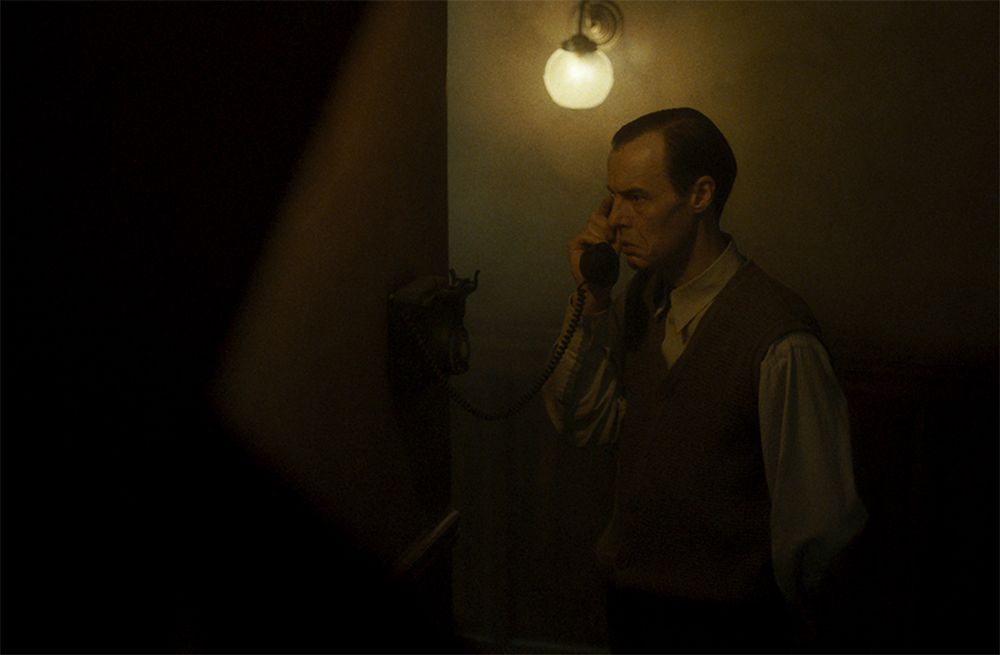Lucile Hadžihalilović continues her streak of crafting nightmarish fever-dream-esque films with her latest, “Earwig,” which is a weird film that does take its time to settle down, but when it does, it’s pretty fascinating.
After working as Gaspar Noe’s editor and producer in films like “I Stand Alone” (1998) and “Carne” (1991), Hadžihalilović found her way into filmmaking. Her style is unique and unlike any other; she stylizes her films so that it is effervescently nerve-racking in how she makes her pictures feel, look, and sound. Yet, somehow, thematically, her films garner around the same topics: the coming of age. Of course, it isn’t just the aspect of growing up, but how it causes changes in your life that might devour your soul for better or worse.
From “Innocence” (2004) to “Evolution” (2015), these themes are present in the weirdest settings imaginable. Whether it will be a private school for girls or a seaside housing estate where they do medical trials for the young boys to disrupt the evolution junctures, Hadžihalilović delivers a unique viewing experience. Due to the absurdity, it may not be to your liking, albeit it is refreshing to see filmmakers do stories like this. Now, in her latest feature and first in the English language, she takes on Brian Catling’s novel, “Earwig,” to the big screen.
In a European apartment during the middle of the last century, Albert (Paul Hilton) cares for a 10-year-old girl. The girl doesn’t have teeth per se; she has ice dentures made from her saliva. Albert must change those dentures several times while he tends a metal appliance fitted to her face. Regularly, he gets a phone call regarding the girl and how she is doing, until one day, things change. The unknown caller asks him to prepare the girl to leave the apartment and travel to a new place.
The story doesn’t explain things; it is very secretive and mysterious in a non-pretentious way. That may throw people off as it is up to you, the audience, to unravel the mysteries. Lucile doesn’t make things easy for the viewers because she depends on shape shifting the atmosphere depending on the tone and structure she wants to conjure. With “Earwig,” it is primarily a silent movie; not a lot of dialogue is said. It depends more on the more minor details and shadows of the lurking abyss to tell the tale.

Like Hadžihalilović’s previous work, this is like a fever dream comes to life and into the screen. It has horrific elements that feel like a ghostly fantasy book and grounded moments you can relate to. However, it all ends up feeling nerve-racking and tantalizing in the best way possible. “Earwig” is described as a gentle nightmare, and it does fit the description. It is a slow burn. It takes its time to take you through the surrealistic journey; delicate while dark and disturbing while imaginative.
The cinematography by Jonathan Ricquebourg and the sound design by Bruno Schweisguth, Ken Yasumoto, and Benoît Biral help craft such eloquent and eerie settings. It also acts as a bouquet to the lack of dialogue in most of the scenes. Instead, it is all about the feeling and sensation it all brings onto you while watching. “Earwig” provokes thought due to the unsettling ambiance and incubus-esque tale of childhood. In a time where coming-of-age films are made constantly, this one stands out by its uniqueness in storytelling.
Who would have imagined that a film about a girl with ice dentures would work as it does. Yes, it is weird, and during the first act, you don’t know precisely what is happening. The story could have made time to explain itself quite a bit. In addition, there are some plot holes in its narrative that need fulfillment to work perfectly. Nonetheless, it all works out in the end. Hadžihalilović’s films leave you with that “what the hell did I just watch?” sensation. “Earwig” is her most macabre and unflinching as it is her most atmospheric.
This review of “Earwig” is written from its screening at the 2021 Toronto International Film Festival (TIFF).